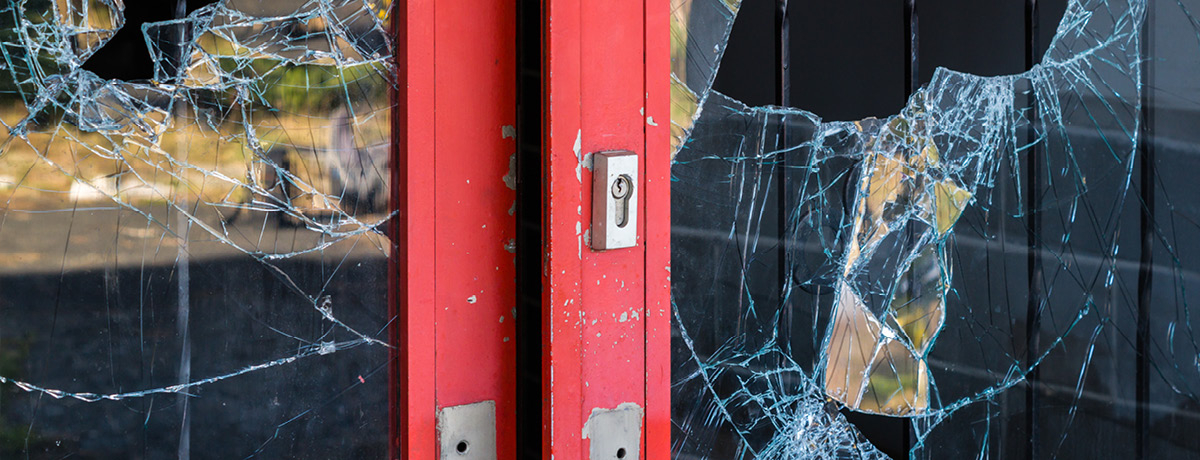The Sixth Circuit recently held that a court could not award lost profits as restitution to a business forced to close for several months due to a robbery.[1] In doing so, the Sixth Circuit overturned the district court and marked its position in a developing circuit split.
The case at issue revolved around a defendant who, during the protests and riots following the murder of George Floyd, broke the window of a bakery. This allowed the defendant and others to loot the store. Roughly $280,000 of store property—including electronics and cupcakes—were stolen. The store remained closed for four months following the incident. The defendant was later convicted of Hobbs Act Robbery. The district court sentenced the defendant to 48 months in prison and ordered the defendant to pay nearly $230,000 in restitution. Approximately $190,000 of the restitution order accounted for the bakery’s estimated lost profits for the four months it was closed following the riots.
In general, federal courts cannot issue a restitution order in criminal cases unless authorized to do so by statute. The Mandatory Victims Restitution Act (MVRA), 18 U.S.C. § 3663A, requires a district court (in certain criminal cases) to order restitution equal to the “value of the property” on the date of the loss or on the date of sentencing, whichever is greater, less the value of any property returned. However, the MVRA does not define the term “value.” Although the MVRA expressly permits lost profits for bodily injury offenses,[2] there is no consensus as to whether “value of the property” also impliedly entails lost profits from property offenses. Thus, the circuit split largely comes down to a matter of statutory interpretation.
Several circuits have determined that lost profits can be awarded as restitution.[3] For example, the Second adopted a broad interpretation of the MVRA’s language, noting that the statute did not explicitly prohibit recovery of lost profits. The Ninth Circuit, emphasizing that the offense was a direct and proximate cause of the losses, likewise authorized lost profits in a restitution order.
Meanwhile, the Fourth and Fifth[4]—and now the Sixth—Circuits have each rejected the premise that lost profits can be included in restitution orders—at least in some circumstances. The Fourth Circuit and Fifth Circuit relied heavily on the plain language of the MVRA. That is, because Congress could have authorized restitution for lost profits but clearly did not do so, lost profits should not be included in a restitution order.
The Sixth Circuit weighed these competing decisions and ruled that lost profits, which represented lost potential income to the victim, could not be included in the restitution order. In doing so, the court echoed the Fourth and Fifth Circuits and found that the plain language of the MVRA clearly did not extend to property offenses and that such language should not be inferred. The court also noted that the MVRA requires more than mere speculation when calculating restitution. The lost profits at issue were simply too speculative to include in the restitution order.
Still, there remains pushback in the Sixth Circuit. In a concurring opinion, Judge McKeague of the Sixth Circuit emphasizes that the point of restitution and the MVRA is to make victims whole again. Courts, Judge McKeague argues, must be allowed to issue restitution orders with this end in mind. Accordingly, the concurrence echoes the more expansive statutory interpretation advanced by the Second, Ninth and Tenth Circuits.
The Sixth Circuit’s recent decision thus represents a burgeoning divide among the courts regarding the propriety of lost profits in restitution orders. To an extent, the court’s decision can be read as merely requiring greater precision when calculating restitution damages. In other words, courts may not be categorically opposed to awarding lost profits in restitution orders so long as those lost profits are not purely speculative. For now, however, the circuits remain split.
[1] United States v. Buchanan, 2023 U.S. App. LEXIS 22104
[2] 18 U.S.C. § 3663A(b)(2)(C)
[3] United States v. Milstein, 481 F.3d 132 (2d Cir. 2007); United States v. De La Fuente, 353 F.3d 766 (9th Cir. 2003); United States v. Wilfong, 551 F.3d 1182 (10th Cir. 2008)
[4] United States v. Sharp, 927 F.2d 170 (4th Cir. 1991); United States v. Mitchell, 876 F.2d 1178 (5th Cir. 1989)

Nicholas R. Oleski is a principal attorney at McCarthy, Lebit, Crystal & Liffman in the firm’s litigation practice group. His practice focuses on white collar criminal defense and commercial litigation.
































